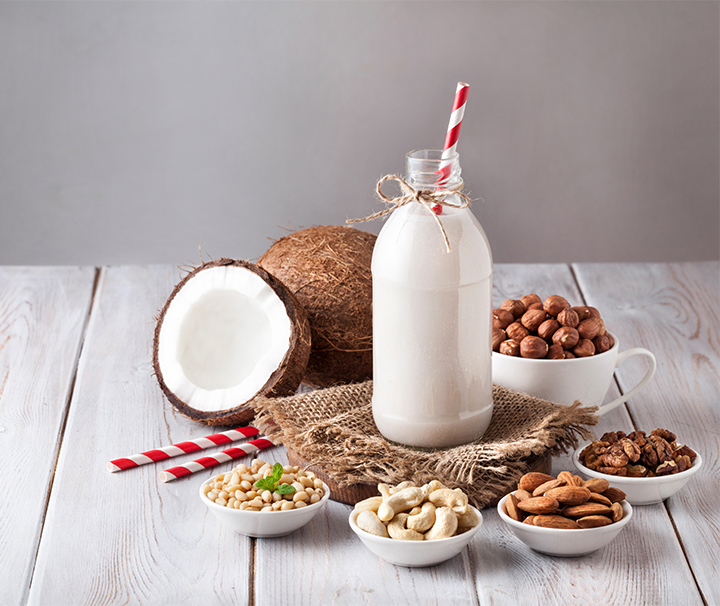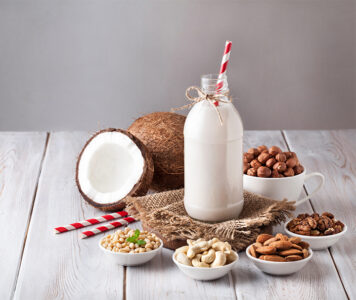“Dairy-Free Delights: Unveiling the Secrets of Plant-Based Milks”

Are you in search of a more sustainable and dairy-free milk option due to lactose intolerance or simply a desire for something new? Plant-based milks have emerged as a versatile and eco-friendly choice, offering a myriad of health benefits and catering to diverse dietary preferences. In this SEO-friendly article, we will delve into the world of alternative plant-based milks, examining their nutritional profiles, environmental impact, and practical applications.
The Popularity of Plant-Based Milk Alternatives
Plant-based milk alternatives have witnessed a surge in popularity in recent years, owing to their ecological sustainability, nutritional advantages, and adaptability to varying dietary needs. Let’s explore some of the favored options:
Almond Milk:
Almond milk, crafted by blending almonds with water and straining to eliminate solids, boasts a creamy texture and a subtle, nutty flavor. It is low in calories and often fortified with vital nutrients such as calcium and vitamin D.
Soy Milk:
Soy milk, produced by soaking, crushing, and filtering soybeans, offers a neutral taste with a hint of sweetness. Rich in protein, it is commonly enriched with calcium and vitamins, making it an ideal choice for those with lactose intolerance or nut allergies.
Oat Milk:
Oat milk, created by soaking oats in water, blending, and straining, offers a naturally sweet taste and a creamy texture. Many varieties are fortified with essential vitamins and minerals like calcium and vitamin D.
Coconut Milk:
Coconut milk, made from mature coconut flesh, delivers a naturally sweet, tropical flavor and a thick, creamy consistency. It imparts a distinct taste to beverages, smoothies, and curries while providing beneficial fats.
Rice Milk:
Rice milk, prepared by mixing water with boiled rice and straining, offers a mildly sweet taste and a watery consistency. It is frequently favored by those with dairy allergies or intolerances.
Cashew Milk:
Cashew milk, derived from blending cashews with water and straining, offers a slightly sweet taste and a creamy texture. It serves as a versatile base for various culinary creations and is rich in beneficial fats.
Hemp Milk:
Hemp milk, produced by blending hemp seeds with water, offers a slightly nutty flavor and creamy consistency. Frequently fortified with calcium and vitamin D, it’s a robust source of omega-3 fatty acids.
Pea Milk:
Pea milk, made by grinding yellow peas into flour, mixing with water, and filtering, has a neutral taste and a hint of sweetness. Protein-rich and enriched with vitamins and minerals like calcium and vitamin D, it’s an excellent choice.
Flaxseed Milk:
Flaxseed milk, prepared by mixing water and flaxseeds and straining, has a moderate, nutty flavor and a slightly thick texture. Abundant in omega-3 fatty acids, it’s often enriched with additional nutrients.
Macadamia Nut Milk:
Macadamia nut milk, crafted by blending macadamia nuts with water and straining, offers a rich, buttery flavor and a creamy texture. With more calories and healthy fats compared to other alternatives, it adds a unique twist to your beverages and recipes.
These plant-based milk substitutes come in a variety of flavors and textures, catering to individuals with dietary restrictions, sensitivities, or intolerances. Explore these sustainable options to discover the one that suits your taste preferences and nutritional needs.



